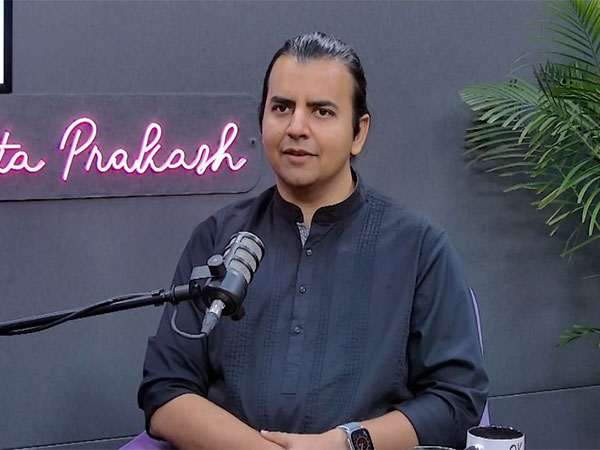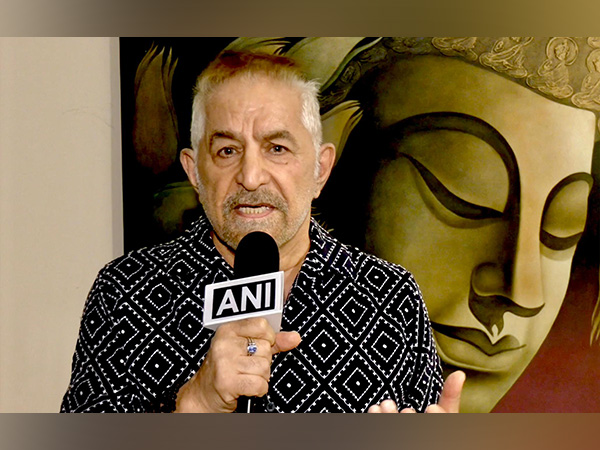New Delhi [India], July 7 (ANI): India has about two per cent share of global computing industry and should think how to use Aritficial Intelligence (AI) opportunity to get much more value into the country as AI going to change the rules of the game in the computing industry and across all industries, Krutrim founder Bhavish Aggarwal has said.
In an interview with ANI, Aggarwal, who is also CEO of Ola and founder of Ola Electric, took potshots at comments of OpenAI CEO Sam Altman which were seen as a challenge to Indian companies’ capabilities to produce large-language model (LLM) and said these remarks are “genuinely wrong” and “whether it’s Sam Altman or whoever, they have this white man burden that we have to help humanity”.
Krutrim, AI startup founded by Aggarwal, has gained unicorn status.
“In Krutrim, we are building the full stack. So, just like in electric, we have made the product and now we are also making lithium cell. In Krutrim, we are building the full stack, starting from the AI models and we released our first model, which is a small model four months back. We want to be able to create a frontier model, which is a chat GPT-type model in about a year or so. That’s our ambition. That’s the models, AI models. Then AI model is just the software. It runs on hardware. Data centers and the cloud cannot be outside of India and AI is running in India,” he said.
“So we are also creating the cloud technology to run it and also offer our cloud technology to developers in India. And then we’re also creating the chip which will go into the data center. We are not going to do the fab. It is strategically important for India. And Tata is doing it and others are doing it. It’s very geo-strategically important for India to have its own fab capacity. But the chip is itself very highly important also. Because, just say, Nvidia makes chips. It doesn’t have a fab. It’s called a fabulous chip company. In Krutrim we are building the full stack. The AI models, the cloud and data center and the chip also. And this is a 10-20 year vision. Everything will not happen at once. We will do it one by one,” he added.
Krutrim means “artificial” in Sanskirt.
Answering a query, Aggarwal said the Sam Altman’s comments on India were a kind of challenge. He said Indian companies should make themselves capable and go to the Bay area in the United States and pay back in the same coin.
“He said two things. He came to India once and said that ‘tumse na ho payega’ (you won’t be able to do it). One day, we’ll go to Bay Area and say ‘tumse nah ho payega’. Today, we first we have to make ourselves capable…. It pinches and hurts, it is also (matter of) ego…Punjabiat. It is also genuinely wrong. How can someone say like this? The tech ecosystem in California has a very white man burden syndrome. Whether it’s Sam Altman or whoever. They have this white man burden that we have to help humanity. We have to save humanity,” Aggarwal said.
Altman during a visit to India in June last year had said that it is “totally hopeless to compete with us on training foundation models.” He had later sought to clarify his remarks.
Aggarwal, however, acknowledged that California and the West Coast have “a very high productive ecosystem.”
He said India should think of leverage the Taiwanese ecosystem for enhancing abilities in AI.
Aggarwal said there is huge need of computing in the three companies he runs Ola Cabs, Ola Electric, and Ola Krutrim.
“Krutrim is building the core technology for AI. So my purpose and ambition in Krutrim is to use this AI opportunity to create in India the future of compute. And we have been a beneficiary of this IT services boom in India. But if we contextualize that, the global software computing industry value is about USD 20 trillion dollars…the market cap of Indian IT services industry is USD 300 billion. So we’ve got two per cent of the value share of the global computing industry. While it has benefited us a lot, but we now need to think for the future, how do we use this AI opportunity and get much more of the value into India. Because AI is going to change the rules of the game in the computing industry and across all industries,” Aggarwal added.
He said as a country, and as different elements of civil society, be it businessmen or media or bureaucrats or politicians or government, everybody has to really think strategically about AI.
“Because while there is a risk, there is also an opportunity. Because because of AI, economic productivity is going to increase a lot in the whole world… There will be disruptions in jobs. And again, I’m going to be factual in my opinion, but based on what I think is facts. The biggest impact in the near term, let’s say the next five years, is going to be the white-collar jobs, not the blue-collar jobs.
Noting that AI is an economic productivity tool, he said there is need to start thinking of India-centric AI paradigm and that the next Instagram should come from India.
“We can use it to grow our economic productivity faster. So we need to adopt AI at a leadership level in the world. So that we can become a global AI center. But it’s also a cultural, you know, it’ll culturally subsume us if we don’t build our own AI. Like if you ask something about India on ChatGPT, it’ll answer something from the New York Times. Because it has learned that Indian data is not mostly available on the internet,” he said.
“We have to start thinking of an India-centric AI paradigm where we train it on much more Indian data, Indian cultural sensitivities, Indian languages, and Indian context of user and requirements. For example, what we are doing as a small example, we’ve hired Sanskrit PhDs to point our AI training to the source of truth, the primary source. A lot of Indian cultural primary sources are in Sanskrit. Whether it’s Ramayana, Mahabharata, Vedas. And then similarly, we’re starting to do this for all languages now. So that we build our AI which is much more anchored on genuinely primary sources of Indian sensibilities. And primary sources, not some New York Times, not some Indian opinion about our sources. All that is cluttered,” he added.
Aggarwal runs an all-women factory and there are close to 5,000 women working in the place which serves the auto industry. “I’m all for diversity and genuine social impact,” he said.
Aggarwal said one of his areas of interest is India’s history.
“The genuine liberal is actually our ancient philosophies…there’s so much to learn about our past. And I think the younger generation is disconnected from it. And the onus is, I believe, on our generation… We have to make our philosophies cool again, which can only happen by building the future,” he said.
“The battles of the past can only be won by winning the battles of the future. So we have to win and create our technology paradigms, our business paradigms, our cultural paradigms, inspired by our ethos and our past. That cannot be done only in the field of politics. Politics is very important. But in the business field, technology field, like meta and Instagram and all, they define culture. So what is going to be the next Instagram we have to build from India. so that we can anchor it into our cultural value system,” he added. (ANI)
Disclaimer: This story is auto-generated from a syndicated feed of ANI; only the image & headline may have been reworked by News Services Division of World News Network Inc Ltd and Palghar News and Pune News and World News
HINDI, MARATHI, GUJARATI, TAMIL, TELUGU, BENGALI, KANNADA, ORIYA, PUNJABI, URDU, MALAYALAM
For more details and packages
















